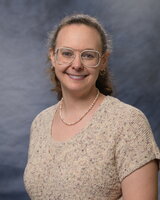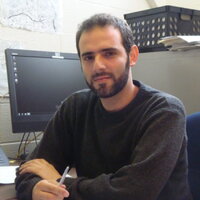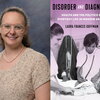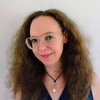
The study of Middle Eastern history at Illinois draws on departmental faculty with particular expertise in Arab and Ottoman history in the modern and early modern periods, in the areas of social and legal history, demographic and family history, religion, nationalism, and agrarian history (see faculty list below). Illinois’ history department is in the top ten among public institutions.
Campus Resources
Our library is the third largest university library in the United States and a leader in digital services. The Library became a PL480/ Library of Congress repository for Arabic materials in 1965, and materials in Persian, Turkish, and Hebrew are housed in the Middle East and North African collection. The African Studies collection is an important additional resource, with its holdings related to Islamic Africa.
Outside the Department of History the interdisciplinary Center for South Asian and Middle Eastern Studies promotes programming, research and teaching about, and public awareness of, the societies and cultures of South Asia and the Middle East. It supports activities that promote understanding of the Middle East in the community and add to the intellectual life of the university. Middle Eastern studies is enhanced by the activities of several other area, ethnic, and cultural studies centers and programs. These are the Center for African Studies, which includes North Africa in its purview; the Russian, East European and Eurasian Center, which covers the former Ottoman lands of Southeastern Europe as well as the Caucasus and Central Asia; and the Center for Global Studies. Additional resources are the Program in Jewish Culture and Society, the Department of Asian American Studies, and the Humanities Research Institute.
Other Resources
Related Faculty in Other Departments
- Asef Bayat (Department of Sociology). Social movements and non-movements, religion-politics-everyday life, Islam and the modern world, urban space and politics, and international development.
- Donna Buchanan (Musicology and Anthropology). Music of the Balkans, Russia, Armenia, and Georgia
- Eric Calderwood (Program in Comparative and World Literature). North African Literature and Film in Arabic, French, and Spanish; Al-Andalus (Medieval Muslim Iberia); Arabic Language and Literature; Historiography; Colonial and Post-Colonial Studies.
- Michael Dann (Department of Religion). Islamic intellectual history; genesis and development of the Sunni-Shi`i divide and their subsequent interactions; Sunni and Shi`i hadith criticism.
- Virginia Dominguez (Department of Anthropology). Transnationalism, multiple identities, and hybridity; Cuba, Uruguay, Puerto Rico, Mexico, Lebanon, Israel, and Hungary.
- Hadi S. Esfahani (Department of Economics). Comparative development economics; Egypt, Iran, Philippines, Turkey.
- Rachel Harris (Program in Comparative and World Literatures). Suicide in Israeli Literature, Contemporary Literary Journals in Tel Aviv and their use in Manifestos, and Modern Hebrew Poetry.
- Wail Hassan (Program in Comparative and World Literatures). Arabic literature, critical theory, transnational studies, gender and sexuality, translation
- Linda Herrera (Department of Educational Policy, Organization, and Leadership). Comparative/international education, international development studies, and youth studies in the Middle East and North Africa.
- Valerie Hoffman (Department of Religion). Islam; Sufism; women in Islam and Muslim societies; and contemporary Islamic movements
- Maryam Kashani (Department of Asian American Studies). Racial/ethnic/religious diasporas and transnational political movements; gender and sexuality; Islam and Muslim communities.
- John Karam (Department of Spanish & Portuguese). Area and Ethnic Studies, Race, Nationalism, Transnationalism; Latin America and the Middle East.
- Avital Livney (Department of Political Science). Politics of religion and ethnicity, electoral dynamics in developing democracies, and variations in interpersonal trust, across space and time. Regional interest is the Muslim World, particularly the Middle East, with extensive field research in Turkey.
- Ghassan Moussawi (Department of Sociology). Gender; Sexualities; Race and Ethnicity; Global and Transnational Sociology; Social Movements; Queer Theory; Postcolonial Theory; Feminist Theory and Methods; Qualitative and Interpretive Methods; Lebanon.
- Laila Hussein Moustafa (Library). Middle East and North African collection.
- David O'Brien (Program in Art History). French Orientalist painting, the Napoleonic expedition to Egypt, modernist art in the Islamic world.
- Junaid Rana (Department of Asian American Studies). South Asian Americans, diaspora, Pakistan, labor history, Muslims and migration, racial formation, and social movements.
- D. Fairchild Ruggles (Department of Landscape Architecture). Visual culture and the built environment of the Islamic world; landscape history; women's patronage.
- Mahir Saul (Department of Anthropology). West Africa; Muslims in Europe and America.
- Lila Adib Sharif (Department of Asian American Studies). Palestine, foods, empire, race, violence, gender.
Middle Eastern Languages Taught at Illinois
Four Middle Eastern languages are taught at Illinois: Arabic, Hebrew, Persian, and Turkish. Foreign Language and Area Studies (FLAS) fellowships are available to U.S. citizens or permanent residents for the academic year as well as for summer programs. Incoming, as well as continuing students, are required to apply through the History department. FLAS fellowships are offered by the following area studies units for language study related to their geographical areas of focus:
- The Russian, East European and Eurasian Center (Turkish, Persian)
- The European Union Center (Turkish)
- The Center for Global Studies (Arabic, Hebrew, Turkish, and Persian)
History Faculty working in Middle East



Related News

New book by professor Laura Frances Goffman uncovers history of trachoma medical experiments in Saudi Arabia
